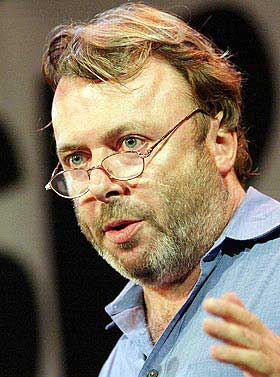Microevolution (n): Evolution resulting from a succession of relatively small genetic variations that often cause the formation of new subspecies.As I have discussed before, the former is not controversial while the latter has no evidential support. But in the Evolutionary Mythology, the former must lead to the latter. That is the crux of the theory. Intermediary fossils should offer us a historical picture of just how this occurred.
Macroevolution (n): Large-scale evolution occurring over geologic time that results in the formation of new taxonomic groups.
If this tree of life grew as claimed, we should find literally billions upon billions of “intermediate” forms of life fossilized all over the Earth. The patterns we would expect to uncover should show barely detectable differences in body forms as plants and animals made the minute transformation between their original and current forms. Not only so, but the pattern formed by those billions of fossils should also reveal the equally minute transformation of life from the simplest form (originating in the “warm little pond”) to the most complex advanced life we are surrounded by today (you).Or, as Phillip Johnson puts it, “…if Evolution means the gradual change of one kind of organism into another kind, the outstanding characteristic of the fossil record is the absence of evidence for [Macro]-evolution.” (Darwin on Trial, 50)So what do we find? In the 150 years since Darwin proposed this idea, the lack of transitional fossil evidence is the most glaring deficiency in Evolutionary Theory. There simply isn’t any. Though Darwinian devotees are quick to run some of their “missing links” up the media flagpole, the examples they use are lame to insufficient.
Henry, Dyke and Cruz offer a compelling discussion about the distinctions between these ideas that is well worth the read. A summary of their observation is that: "the simple truth is that there is no hard evidence for macroevolution; it is inferred by extrapolating microevolution over geological ages. Yet this inference is questionable." And, once again, the most damning evidence against the myth of Evolution comes from the scientists themselves:
Even when he originally proposed this notion, Julian Huxley observed: "It must be admitted that the … proof of the utilization of mutations in evolution under natural conditions has not yet been given."Now, I have bantered with Evolutionists who avoid this distinction by claiming that there is no "magical point" where microevolution stops and macroEvolution begins. This is a credible rejoinder in theory but the facts are these:
And the same is true today. Zoologist Pierre-P. Grassé claims: "to insist … that life appeared quite by chance and evolved in this fashion is an unfounded supposition which … (is) not in accordance with the facts."
Biologist Lynn Margulis says, "I have seen no evidence whatsoever that these changes can occur through the accumulation of gradual mutations."
1) There is no evidence for naturally occurring change of the magnitude required for macroEvolution, even in intelligently driven experimentation. For example, dog breeding may produce some wildly varying types of dogs but it has never resulted in something that wasn't a dog!
2) Where species-altering mutations do result in significant changes to an organism, those changes are always detrimental to its survivability.
Despite the mythological claims of the Evolutionists to the contrary, the actual scientific evidence (that inconvenient little detail that is too-often ignored) does not support the myth of macro-Evolution.
 Assertion: (The God Delusion, p. 4) “…delusion [is] ‘a persistent false belief held in the face of strong contradictory evidence, especially as a symptom of psychiatric disorder’. The first part [of this definition] captures faith perfectly. As to whether it is a symptom of a psychiatric disorder, I am inclined to follow Robert M. Pirsig … when he said, ‘When one person suffers from a delusion it is called insanity. When many people suffer from a delusion it is called Religion.’ … Of course, dyed-in-the-wool faith-heads are immune to argument.”
Assertion: (The God Delusion, p. 4) “…delusion [is] ‘a persistent false belief held in the face of strong contradictory evidence, especially as a symptom of psychiatric disorder’. The first part [of this definition] captures faith perfectly. As to whether it is a symptom of a psychiatric disorder, I am inclined to follow Robert M. Pirsig … when he said, ‘When one person suffers from a delusion it is called insanity. When many people suffer from a delusion it is called Religion.’ … Of course, dyed-in-the-wool faith-heads are immune to argument.” Two years ago, I related the story of my friend Tim (
Two years ago, I related the story of my friend Tim ( Harris later wrote a
Harris later wrote a  Christopher Hitchens weighed in with his
Christopher Hitchens weighed in with his  [cross-posted on the
[cross-posted on the 